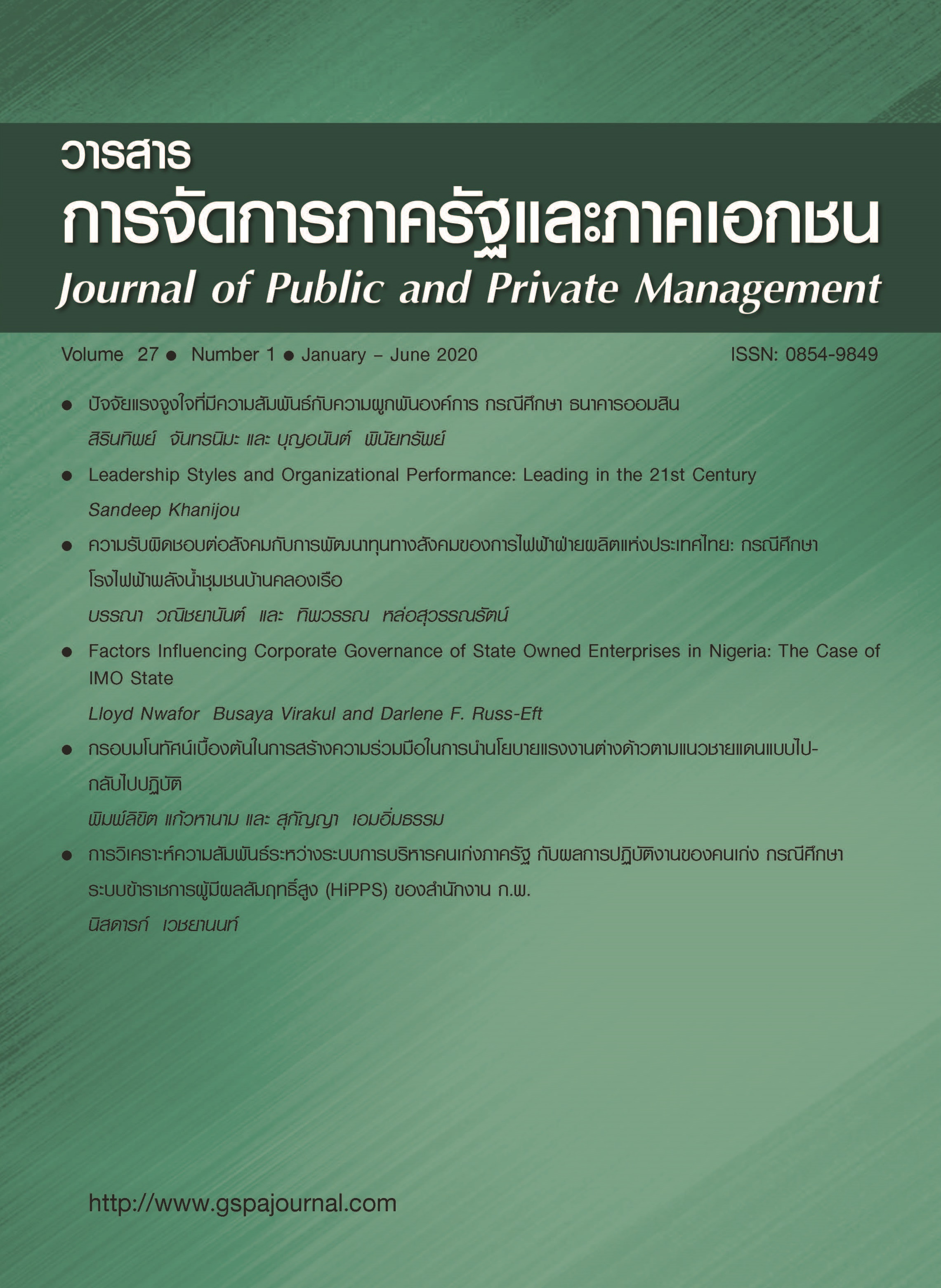Talent Management System, Strate Analysis of the relationship between the government Talent Management System with the Talent Performance a case study of the High Performance and Potential System (HiPPS) of the Office of the Civil Service Commission.
Abstract
This research aims to study the relationship between the Talent Management System (TMS) of the Thai government and the adaptation of strategies into organizational operations. In addition, the research study the influence of the government talent management system to the performance of talents in the High Performance and Potential System (HiPPS) of the Office of the Civil Service Commission through insertion variables which are Perceived Organizational Support (POS) on the component variable which are organiational engagement and commitment.
The research uses quantitative methods composing of questionnaire answer by 837 talented people in the 1st to 12th HiPPS programme participants. The study also utilises statistical analysis including percentage, mean, standard deviation and coefficient of correlation between variables by using the Structural Equation Modeling (SEM) program. Therefore, the research expose to data limitations since there are 268 respondants accounting for 32.02%. Additionally, the researcher conducted in-depth interviews, both in-group and in-person, with open-ended questionnaires from supervisors of talents from two governmental departments comprising of 11 key informants to understand the problems, obstacles, and limitations of the talent management system and suggestions which are beneficial to this research study
The researcher finds that the strategic implementation has a relatively high correlation with the talent management system. By sorting the sub-systems within the talent management, these sub-systems include the maintenance system, recruitment and selection system, and the development system respectively. The researcher also finds that the talent management system has a direct influence on the individual performance in the medium level. Moreover, the talent management system has a positive influence on the Perceived Organizational Support at a relatively small level, and a positive influence to the engagement and commitment at a low level and small level respectively. In case of the Perceived Organizational Support, there is a positive influence on engagement and commitment to the overall performance at a very small level. Thus, the engagement has a very positive impact on Task Performance and Adaptive Performance. In addition, the commitment has a positive influence to the Contextual Performance at a low level but has a moderate negative influence on counterproductive behaviors.
The results of the study recommends that the Office of the Civil Service Commission should have a programme to evaluate the success of the HiPPS project based on organization’s initial objective which is the question of how much talents can support the strategy Implementation success. Furthermore, the Office should review and develop the talent management system because there is no significant benefit on the performance of talent people. In addition, the government must review whether this group of personnel development is satisfactory. The information show that these talents have a high turnover rate and the retention has been unsuccessful.
Downloads
Published
How to Cite
Issue
Section
License

This work is licensed under a Creative Commons Attribution-NonCommercial-NoDerivatives 4.0 International License.



